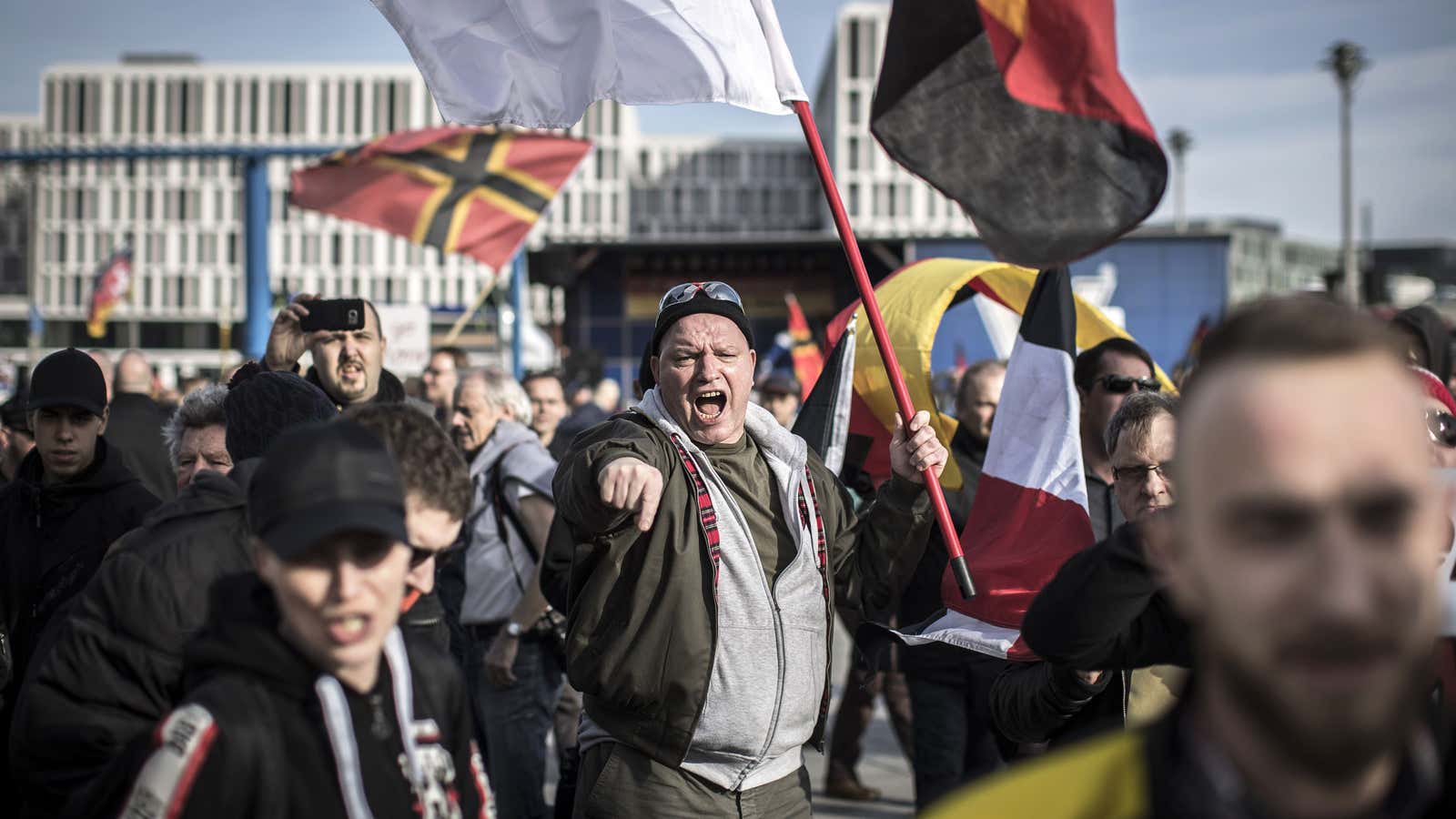Harmless loners obsessed with conspiracy theories, or genuine threat to the state?
In Germany, the Reichsbürger movement, which translates as “citizens of the Reich” or “imperial citizens,” has been around since the 1980s, in some shape or form. Until recently, members of this fragmented, leaderless group were dismissed as a collection of unsavory but obscure losers. Among other things, many of them believe Germany is an American colony run by Jews, and that the upstart right-wing political party Alternative for Germany was in fact set up by chancellor Angela Merkel (herself is a “Jewish Freemason”). Holocaust denial, anti-immigrant feelings, and neo-Nazi leanings are prevalent.
The one thing they can all agree on is that the current Federal Republic of Germany is illegitimate. (Thus, the longing for the days of the Reich.) They don’t accept the country’s borders after the Second World War, refuse to obey existing laws or pay taxes, and some have even set up their own mini-kingdoms, flying custom flags and forging phony passports.
For years, the Reichsbürger were seen as more nuisance than threat. But that has changed recently, after a number of attacks on government authorities—one fatal.
This month, Germany’s head of domestic intelligence, Hans-Georg Maassen, said the “Reichsbürger scene” now numbered around 10,000, mostly middle-aged white males. Between 500 and 600 of those were known right-wing extremists, many of whom have gun licenses. Maassen said the community was becoming increasingly radicalized, mainly via social media, and showing “a considerable willingness to employ violence.”
Police have carried out a number of raids on members of the Reichsbürger movement in the past year. Recently they launched coordinated searches in North Rhine-Westphalia, confiscating guns and ammunition and arresting two. Peter Fitzek, a Reichsburger and and self-declared ”King of Germany,” was just jailed for three years for setting up an illegal bank and embezzling €1.3 million ($1.4 million) from the 600 people who gave him their money.
This follows an August incident in which Adrian Ursache, a Reichsbürger and former “Mister Germany” winner, opened fire on police at his home in Saxony-Anhalt, wounding three officers. Things got much darker in October, when another suspected member of the group number opened fire on police at his home near Nuremburg (the cops came to take away his guns after he was deemed mentally unsound to possess a firearm). The man killed a 32-year-old officer.
Dealing with these people is delicate—they frequently issue “death decrees” from their fictional courts to officials. Some government offices are now advising their staff on how to handle “the administration of Reichsbürger.”
In general, Germany’s far-right scene has becoming increasingly fragmented and dangerous. The huge influx of refugees in 2015 and 2016 caused a surge in anti-immigrant sentiment, and the Tagesspiegel newspaper (link in German) recently quoted security sources as saying the number of right-wing extremists across the country rose to more than 23,000 in 2016. There were around 3,500 attacks against refugees and asylum seekers in 2016. Keeping track of these disparate, potentially violent groups like the Reichsbürger is a growing challenge.
